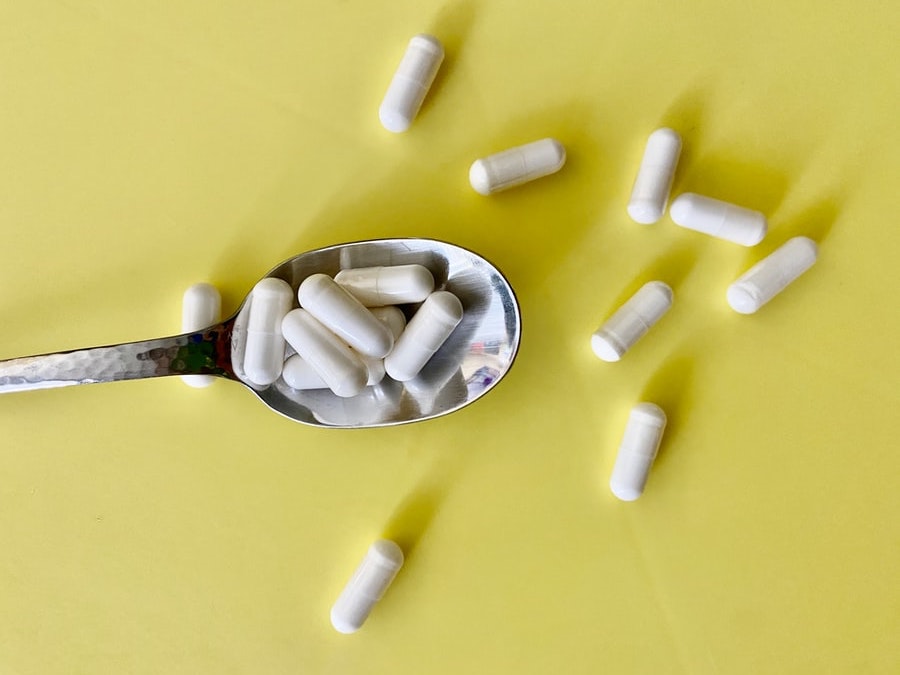The development of Organic Agriculture has been a major turning point in the recent history of our food: an idea that seemed far-fetched and reserved for a few 'enlightened people' 30 years ago has become the main qualitative reference for all consumers.
Now, organic is everywhere and this passport is highly sought after to access the most demanding consumers.
If, for traditional food (fruits, vegetables, animal products, etc.), products labeled organic (AB) offer superior quality, often including more local production, for micronutrition (vitamins and minerals) solutions based on natural products are frequently limited in their effectiveness due to insufficient dosages.
Their synthetic alternatives from very well-controlled production in terms of quality are very safe: these ingredients are, among other things, free from any trace of pesticide.
In this article, we present to you the advantages and limitations of organic vitamins and minerals for micronutrition and the choices we make to offer you healthy and safe products, but also the most effective possible: there is no perfect solution. but our choices are transparent and guided by the search for the best compromise for the consumer.
Organic, natural or synthetic ingredients: a deep dilemma
“ What a shame that your food supplements are not organic”
We have heard this sincere regret dozens of times about our products (Immuno Tonus is certified Organic by Ecocert, but not the other references)...
The AB Label is a guarantee of superior quality and in particular the absence of most pesticides for food products. However, when it comes to micronutrition, the situation is a little more complex because:
- Ingredients of organic origin should be compared with ingredients with a higher dose of the desired active ingredients and without any possible trace of pesticide.
- Micronutrients must be provided in significant doses (in relation to objective needs: the Nutritional Reference Values VNR)
- The ingredients from laboratory production are completely free of pesticides, there is no advantage of organic ingredients on this point.
- Argalys Essentiels: food supplements with dosed active ingredients that meet our overall quality objectives
Food supplements are expensive and comfort products: their first quality must be to provide, at a reasonable price, a significant and guaranteed quantity of the micronutrients mentioned on the label.
The organic origin of a food supplement does not presume its effectiveness , nor its content of active ingredients, but simply the production conditions of the plants concerned (or even animals for certain ingredients).
Let us remember once again that these are relevant criteria for conventional food: the qualitative progress observed in fruits and vegetables over the past 20 years would not have been possible without the specifications and Organic Agriculture certifications.
For dietary supplements, we always prioritize the safety and effectiveness of the formula . This is why our references are the NRV* (or RDA*) and the precise dosage of each capsule.
In the majority of cases, we seek to provide 100% of the VNR of the active ingredients mentioned with a single capsule (for certain 'large' minerals: Calcium, Potassium, Magnesium it is technically impossible, several capsules are needed!).
This leads us to very pragmatic choices for our ingredients by first considering their concentration of active ingredients and their safety (absence of pesticides, heavy metals and other contaminants).
This does not exclude the use of ingredients labeled organic , even when the final product cannot be certified:
This is the case of the Argalys Fer food supplement with organic carrot extract .
In the Argalys Essentiels range, we have a single functional (stimulating) formula, without the notion of micronutrition and in this case, the obvious decision was to have an AB certified product, with active ingredients chosen for the effectiveness of the final product. .
*(Nutritional Reference Value) /(Recommended daily intake)
An example: Organic vs. synthetic vitamins: the match!
| Organic Ingredients: Causes of non-validation for our Argalys formulas |
Synthetic ingredient* | |
| Vitamin content | Unsecured when assets are not 'titled' | Guaranteed and dosed |
| Vitamin concentration | Low to medium (1 to 30%) | Medium to strong (30 to 100%) |
| Vegan certification | No | Mandatory vegan certification |
* we have classified all ingredients obtained by 'non-AB' production processes under the name 'synthesis' (even when it is organic: e.g. vitamin B12 or even natural non-AB: e.g. Vitamin D3 from Lichen or DHA from algae)
The table above summarizes the trade-offs and choices we make for our formulas:
- A guaranteed content of the active ingredient concerned and with a high concentration: We retain the organic ingredient when possible (example: vitamin C in our Iron and Immuno Tonus formulas: Acerola AB titrated), but to hold a dozen of vitamins and minerals in a single capsule, the concentrations of active ingredients are high.
- We also primarily use natural active ingredients such as vitamin D3 or algae DHA when their concentration is compatible with the objectives of the formula.
- We have systematically chosen certified vegan ingredients, which eliminates all organic ingredients of animal origin (Omega3 from fish, most vitamins D, etc.)
Two complementary aspects to understand our choices:
- Are there any differences in assimilation (absorption) by the body between organic and synthetic ingredients?
Reminder: the absorption of a nutrient refers to the proportion of this nutrient which is actually assimilated by the body, in relation to the quantity ingested (swallowed)
The debate is quite secondary but the results of the various studies allow us to put forward 2 tangible points.
- The only vitamin that has been the subject of multiple comparative studies, in different countries and different experimental conditions, is Vitamin C (Ascorbic Acid).
No significant difference in absorption was demonstrated between its natural form and the synthetic form. - The differences in absorption sometimes observed in favor of natural ingredients are most frequently compensated by the higher concentration of the synthetic ingredient , but we must first remember the virtual absence of reliable scientific data on these subjects (at the exception of Vitamin C).
- Is an organic food supplement 100% natural?
The specifications for organic food supplements accept up to 5% of non-AB products , including excipients and additives: this is the case for Magnesium Stearate for example.
At Argalys, we have decided to exclude magnesium stearate from all our formulas (despite its advantages for the dosage of capsule powders) to replace it with rice bran and/or acacia fibers which are less expensive alternatives. easy to work with but more natural.
This is an ultimate paradox: our Argalys food supplements only contain natural additives, whereas synthetic additives are frequently found in AB food supplements.
To conclude :
There is no perfect solution, simply the search for the best compromise.
The 'market' offers several possible options which are all respectable as long as they are transparent and explained.
Our approach is pragmatic to design products with significant and guaranteed nutritional characteristics, without concession to fashion , or to the actual quality of the final product:
Their precise and significant dosage is an essential requirement for the development of our products, such as vegan certification, and priority to natural ingredients, when these are relevant for consumer satisfaction.
To follow soon, a concrete example with our Multivitamins and minerals formula.
The Argalys team
 04 74 03 98 80
04 74 03 98 80









